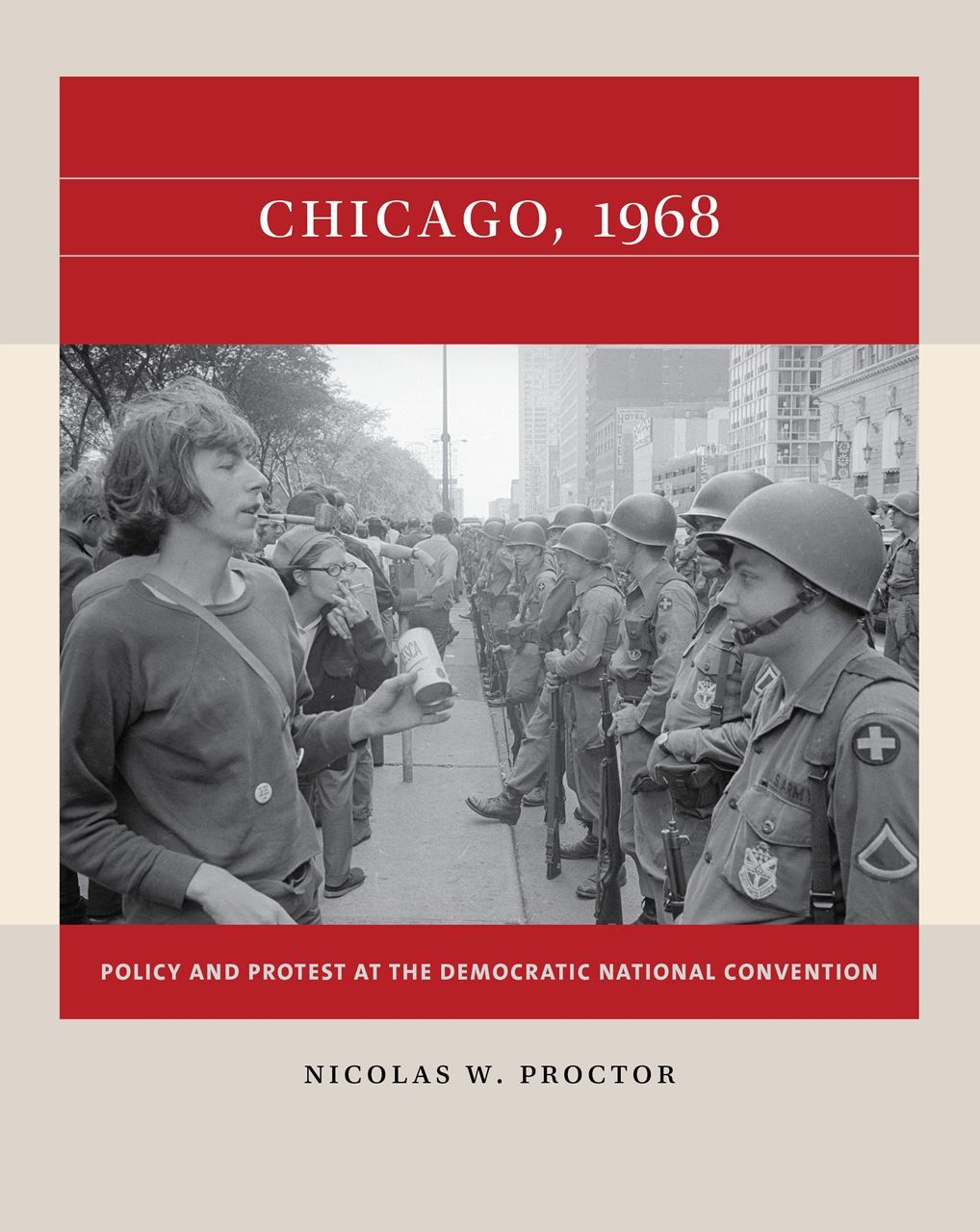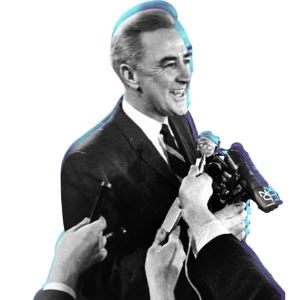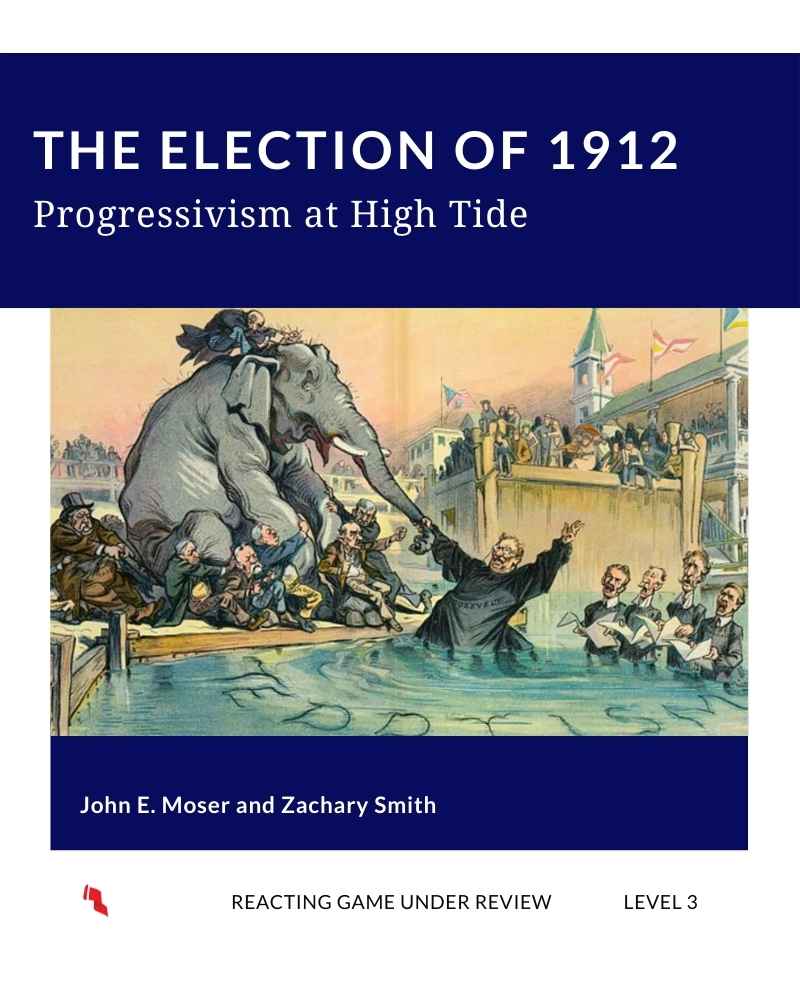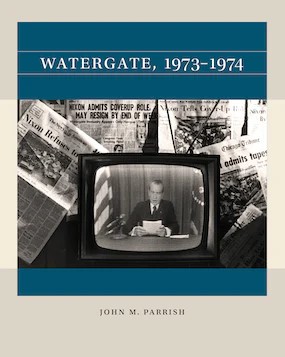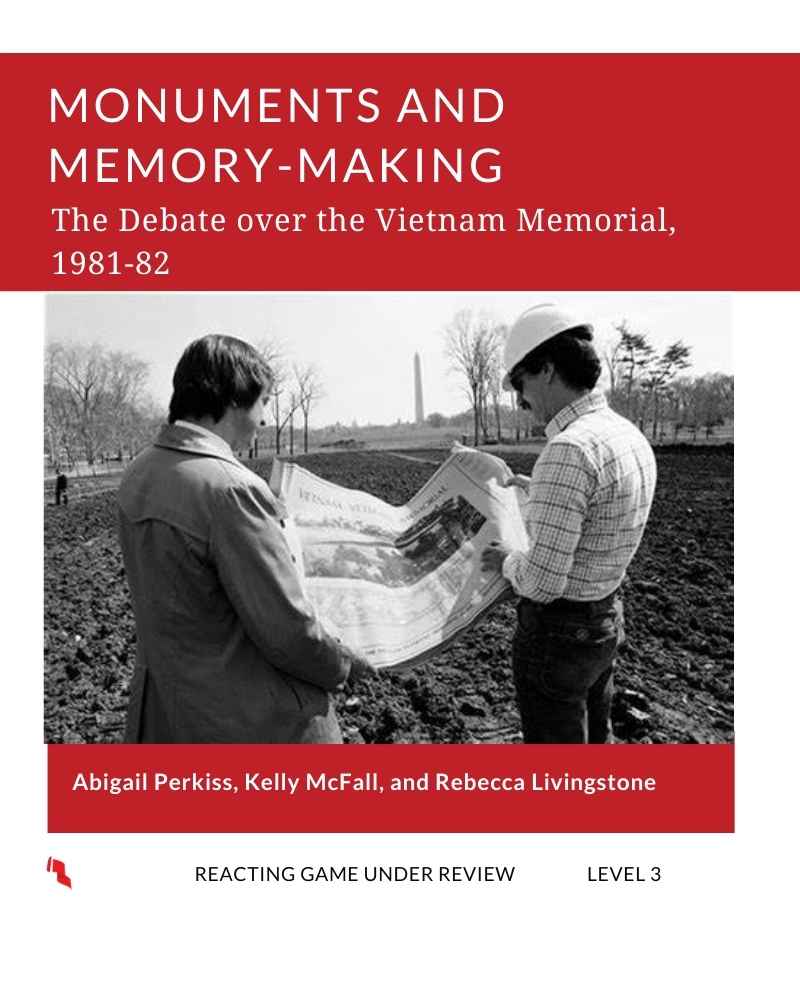 |
Mayhem at the Convention In August 1968, Democrats gather at their National Convention in Chicago to debate a platform for a deeply divided party. Factions are split over issues such as civil rights, infrastructure, and the war on poverty—not to mention the war in Vietnam. Meanwhile, crowds of protesters descend upon the city. Impassioned antiwar protesters plan sit-ins and marches, while the absurdist Yippies, determined to make a mockery of the Convention, intend to nominate a pig for president. Journalists flood the area to cover the stories of the delegates and protesters. Over the course of this game, players will develop a better understanding of the complexities of the social and cultural tumult that has come to be known as “the Sixties.”
|
ABOUT THE GAME Details
|
Notable Roles |
|
Using the Game
Class Time This game is designed for flexible use, because it is divided into parts, which instructors can bundle in a variety of ways for shorter timelines. For the full game, 5 to 7 sessions are recommended (1-2 for setup, 3-4 for gameplay, 1 full debrief session).
Class Size and Scalability |
Read more about scaling this game for different class sizes...
Complete guidance on role assignments can be found in the instructor's guide, and questions can be directed to the game author. The main way this game can be scaled up or down is by eliminating or expanding the journalist roles. Since journalists do not ordinarily give speeches during regular class meetings, this does not affect the time needed to play the game.
CLASSES BELOW 14 In small classes, the instructor may assume the function of the journalists or eliminate the role of journalists altogether.
CLASSES WITH 14-36 STUDENTS Classes with 14-36 students can use the basic roles, available for download below or from W. W. Norton.
CLASSES WITH 37-61 STUDENTS Additional roles are available for download to Reacting Consortium members. Of these additional roles, eleven are delegates, four are protesters, and ten are journalists. Some of the assignments for these roles are specialized. For example, Theodore Meir Phil Ochs should sing instead of giving speeches. Warren Hinckle and Abe Peck should help journalists to assemble and disseminate their stories.
CLASSES WITH 62-67 STUDENTS AND/OR MEDIA EMPHASIS The expanded roles also include roles for William F. Buckley, Jr. and Gore Vidal as well as the cast and crew for an experimental film, “Medium Cool.” These six roles are supplemental to the functioning of the main game. Since these players record their work, it could be shown during the debriefing or players could watch it asynchronously to conserve class time for game play.
CLASSES WITH OVER 67 STUDENTS Press Secretary and Press Stringer roles can be paired with delegate and journalist roles. In order for them to have the opportunity to interact, the instructor may need to help them to schedule press conferences outside of regular game sessions. By pairing each of the 25 delegate roles and 20 journalists, 45 more roles can be added to the game, for a total of 112 roles. To create even more roles, assign individual roles to pairs of students, beginning with the protester roles (which brings the total to 128). Increasing the number of crew members for “Medium Cool” could bring you easily to 130.
The game can be run with even larger numbers than this by expanding the size of the teams playing different roles.
Reviews |
"This game is a blast. The characters are colorful, game play involves political grandstanding, back-room deals, poetry readings, anti-establishment speeches, planned protests, investigative reporting, and much more. There really is something for everyone here." | "The game does an excellent job of getting students inside the many, many divisions within the Democratic Party and the left of this era. There’s a lot of nuance and disagreement here, and the game captures all of that nicely." | "It's very timely and relevant given the current political climate. This event was pivotal but only receives a paragraph or two in the average history text, and has a tendency of being overlooked. It shows a new movement with new actors and players in a biracial coalition that is normally overlooked." |
Read more reviews from instructors...
"This is a game that teaches a lot about the process of political coalition building, the pressures on expansive coalitions, and introduces notions of protest and counterculture as a part of a pluralistic, democratic society."
"Wrapped up Chicago 1968 on zoom/slack, and it was a really wonderful experience. I worried about how some mechanics would work virtually, but we had the same arc and escalation of tension that I've seen several times in the classroom."
"The game has a shorter class-time investment than other simulations, which might be appealing for some new to Reacting."
 GAME MATERIALS
GAME MATERIALS
Confirmed instructors who are not yet members can access basic instructor materials. Reacting Consortium members can access all downloadable materials (including expanded and updated materials) below. You will be asked to sign in before downloading.
GamebookStudents need a Gamebook, which includes directions, resources, and historical content. The Chicago 1968 Gamebook is published by UNC Press. PAPERBACK ISBN: 978-1-4696-7070-6 Available wherever books are sold. | Role SheetsStudents also need a Role Sheet, which contains biographical information, role-specific resources or assignments, and their character's secret victory objectives. .zip file of .pdf files. .docx file. | Instructor's ManualThe Instructor's Manual includes guidance for assigning roles, presenting historical context, assignments, activities and discussion topics, and more. .docx file. .zip file of .pdf files. .zip file of .docx files. |
Additional Resources
Searchable Resources for Introduction and/or Debrief American Experience Chicago 1968 (1995-96 WGBH Documentary Series) | 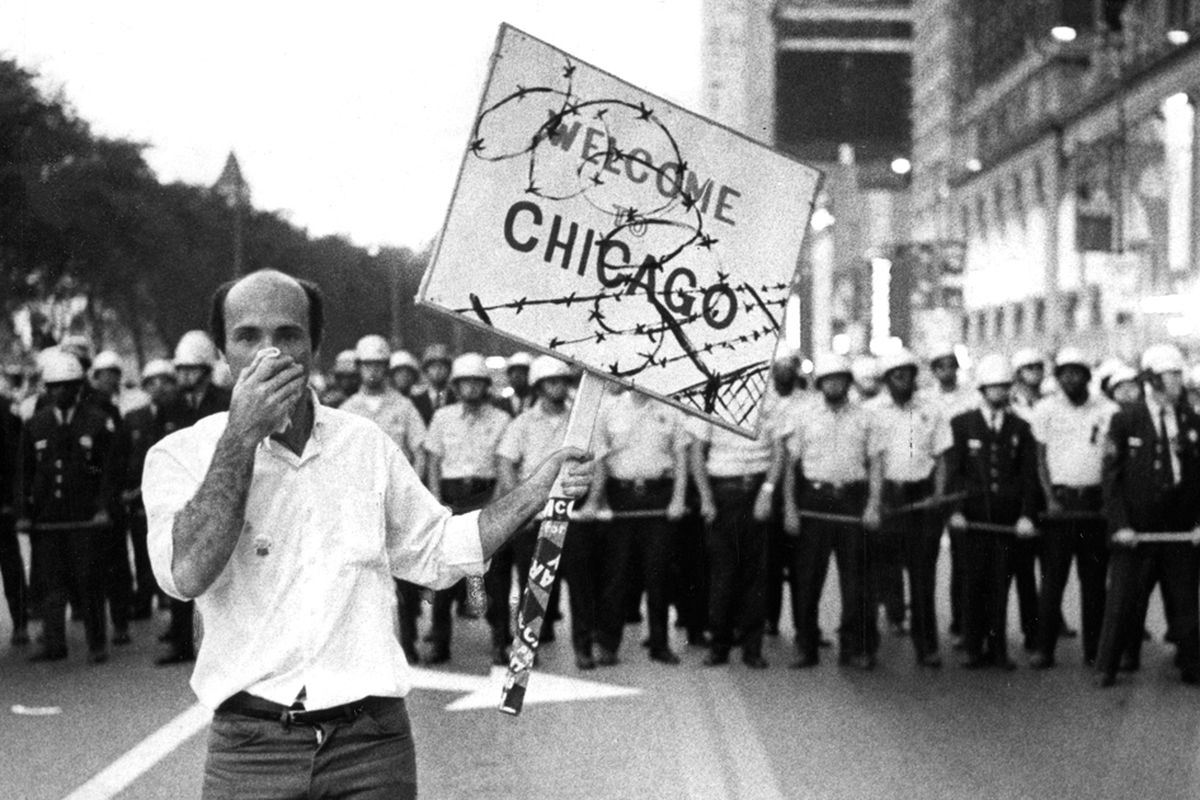 |
Nicolas W. Proctor
Nicolas W. Proctor grew up in Little Rock, Arkansas. After completing his B.A. in history from Hendrix College, he received an M.A. in Diplomacy and International Relations from the University of Kentucky, as well as an M.A. and Ph.D. in American history from Emory University. He is now a Professor of History at Simpson College in Indianola, Iowa, where he has also served as department chair and director of the first-year program. Proctor is also the Chair of the Reacting Editorial Board, overseeing game development. He lives in Des Moines, Iowa, with his family, a print shop, lots of books, five chickens, and too many Legos. After completing a traditional historical monograph, Bathed in Blood: Hunting and Mastery in the Old South, he reoriented his research to fit the needs of a teaching institution and focused on writing historical role-playing games. |
Members can contact game authors directly if they have questions about using the game. We also invite instructors join our Facebook Faculty Lounge, where you'll find a wonderful community eager to help and answer questions.
|
|
|
